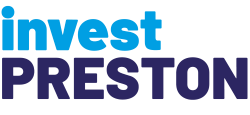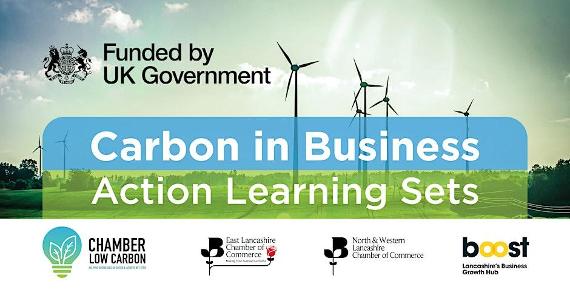Carbon in Business Action Learning Sets - Return on Investment
Return on Investment - prioritizing high impact, cost effective initiatives
Chamber Low Carbon, in collaboration with UCLan, is offering a series of six fully funded sustainability workshops for businesses in Burnley, Blackburn with Darwen, Hyndburn, Lancaster, Pendle and Preston.
This is the third in a series of sustainability workshops, each session will cover different topics each time.
Return on investment
Securing a return on investment (ROI) in a carbon reduction plan requires a strategic approach that balances environmental benefits with financial gains. Here are some key steps to consider:
Prioritize high-impact, cost-effective initiatives
- Identify low-hanging fruit: Start with readily achievable reductions like adjusting lighting schedules, optimising equipment settings, and switching to energy-efficient appliances. These often come with quick payback periods and minimal up-front costs.
- Target major emission sources: Analyse your operations and prioritise reducing emissions from your biggest contributors, like energy consumption, transportation, and manufacturing processes.
Quantify both costs and savings
- Conduct a cost-benefit analysis: Estimate the initial investment needed for each decarbonisation project alongside the projected savings in energy bills, operational costs, and potential tax benefits. Tools like carbon accounting software can help.
- Factor in external benefits: Quantify the non-financial benefits, such as improved employee well-being, brand reputation, and access to green financing, to provide a more holistic picture of the ROI.
Explore additional revenue streams
- Carbon credits: Generate and sell carbon credits earned through verified emission reductions. Investigate carbon markets and potential buyers to maximise this revenue.
- Product differentiation: Highlight your green initiatives to attract environmentally conscious customers and command premium pricing. Branding and marketing efforts can play a crucial role here.
Implement continuous monitoring and improvement
- Track progress: Regularly monitor and measure your emission reductions compared to your targets. This allows you to adjust your strategies and identify further opportunities for optimisation.
- Embrace technological advancements: Stay updated on modern technologies and solutions that can accelerate your decarbonisation journey and enhance savings.
Additional tips:
- Engage stakeholders: Involve employees, investors, and other stakeholders in the plan to achieve buy-in and secure necessary resources.
- Set ambitious yet achievable goals: Define clear targets for emission reductions and communicate them transparently to maintain motivation and track progress.
- Leverage external resources: Seek external guidance from sustainability consultants, industry experts, and government programs to maximise your impact and chances of success.
Remember, securing ROI in a carbon reduction plan is not just about financial gains but also about contributing to a sustainable future. By adopting a strategic and comprehensive approach, you can achieve both environmental and economic benefits, demonstrating responsible leadership and creating long-term value for your organisation.
Lunch will be provided
If you would like more information on the course content, please visit Chamber Low Carbon - Contact.
These workshops are open to businesses in Burnley, Blackburn with Darwen, Hyndburn, Lancaster, Pendle and Preston.
Booking and pricing
This event is free to attend for Lancashire businesses.
You can book your attendance at Eventbrite - Carbon in Business Action Learning Sets - Tuesday, November 12.
Follow the socials
Visit Chamber Low Carbon for more information, and follow them on:



